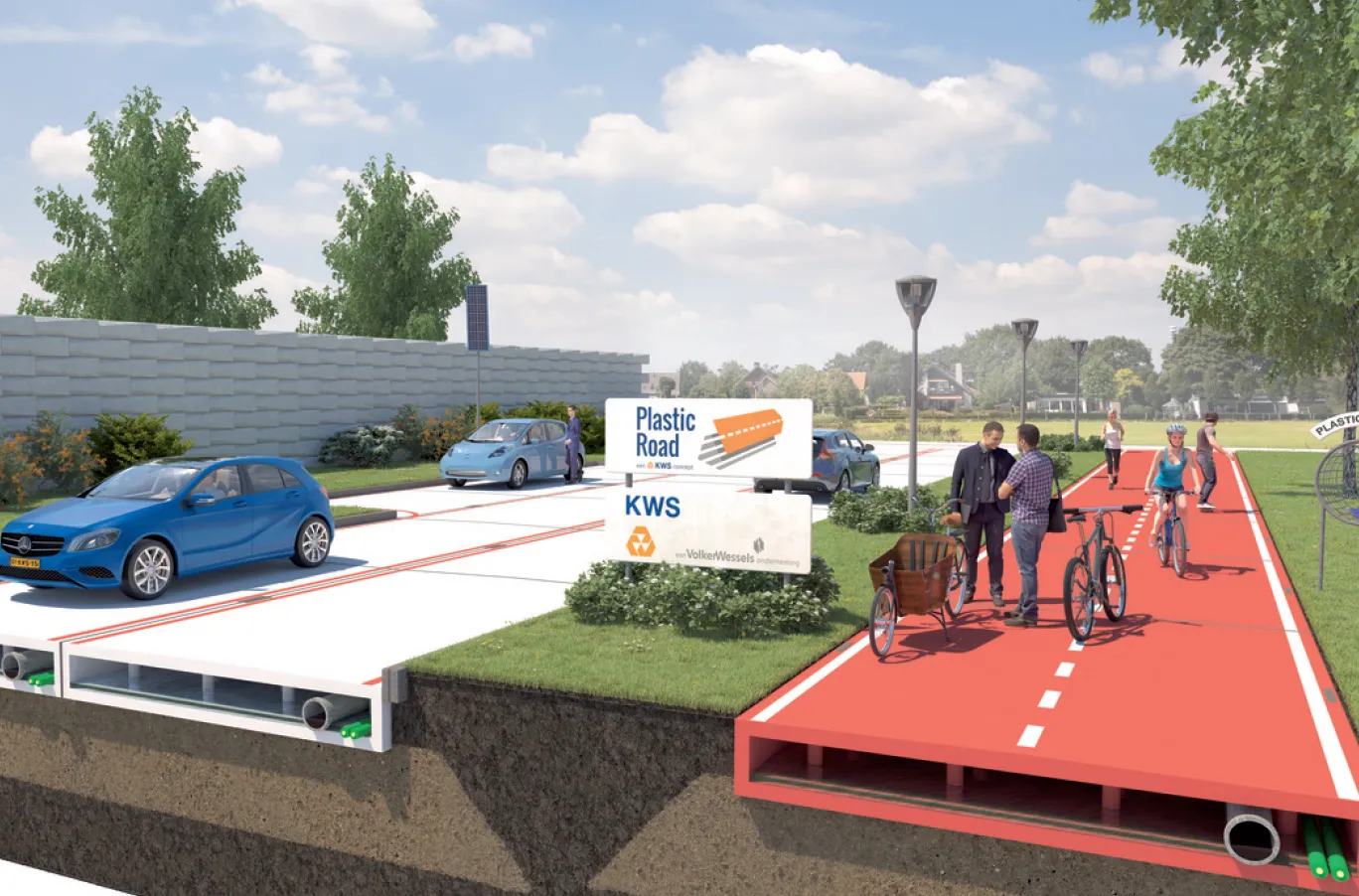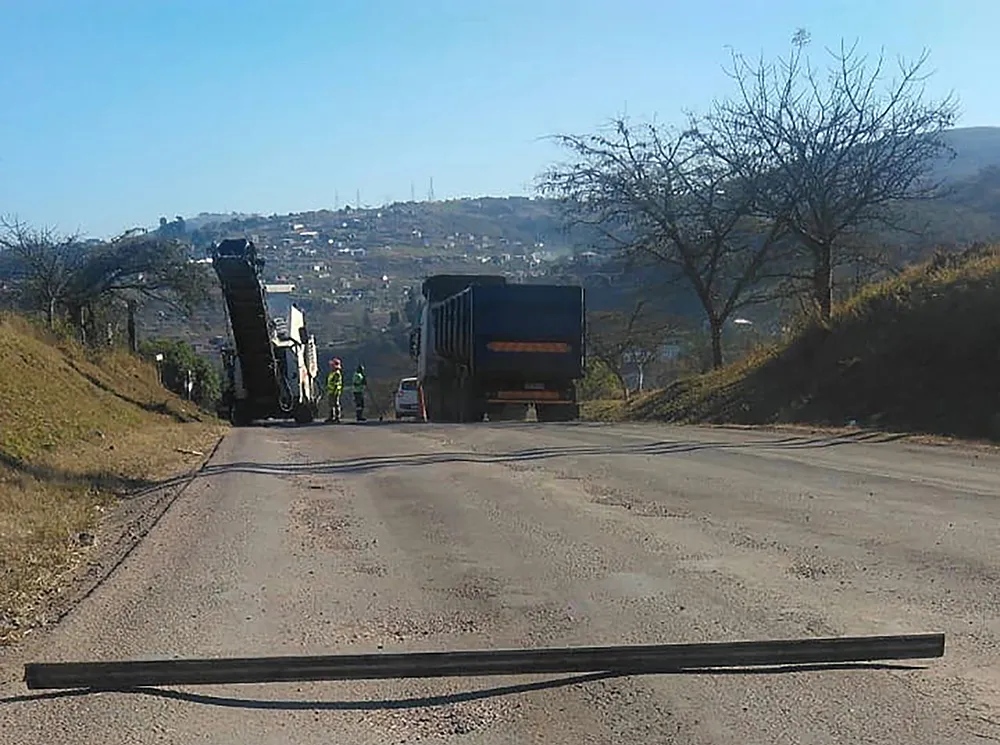
Bitumen and chemicals producer
The PlasticRoad concept, introduced by KWS in 2015, consists of recycled plastic waste formed into lightweight modules. The hollow interiors allow for cables, plastic pipes and general drainage of water. The companies claim that the pre-fabricated units will be easy to transport, assemble and maintain. Their lighter weight means the ground will be less prone to subsidence.
According to a joint statement, the objective is to create a road with a smaller ecological footprint than traditional road systems. When the elements reach their end of life expectancy they can be recycled again, contributing to a circular economy and cleaner environment.
KWS engineers Anne Koudstaal and Simon Jorritsma, inventors of PlasticRoad, said that a prototype should be completed by the end of 2017.
Xavier Bontemps, senior vice president for Total’s polymers business unit, said the project fits in with Total’s expertise in polymer solutions and recycling processes.
“This agreement is aligned with our commitment to using renewable and recycled sources and reducing the carbon footprint for the markets we serve.”
Wavin is a Dutch manufacturer of plastic pipes, mainly for drainage and water supply purposes.







